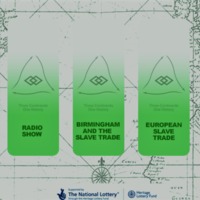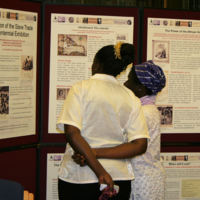
Three Continents, One History: Birmingham, the Trans-Atlantic Slave Trade and the Caribbean
'Three Continents, One History' was a community project led by the African-Caribbean Millennium Centre (ACMC) to explore the historical links between Birmingham, the transatlantic slave trade and the Caribbean. Research focused on themes such as the region's manufacturing history and its links to slavery, the role of local regiments in keeping order on Caribbean plantations, the African presence in the West Midlands, and the region’s role in the abolitionist movement. The project aimed to examine the contemporary relevance of 1807 and the slave trade to Birmingham’s diverse communities, to contribute to a reshaping of the National Curriculum, to establish a physical archive and an interactive website. The research was shared with the public via weekly broadcasts on New Style Radio (a community radio station housed in ACMC) and simulcasts with Caribbean and African radio stations. Other events included conferences, dramatisations and discussion workshops.

Abolition of the Slave Trade Bicentennial Exhibition
This exhibition held by the Cadbury Research Library: Special Collections at the University of Birmingham included material from the archives of the Church Missionary Society held there, and some of its rare book collections. The accompanying information boards are featured here. The exhibition focused on the role of religion in the abolitionist movement, the power of the African voice in literature, and the role played by Birmingham residents in the anti-slavery campaigns. A booklist on anti-slavery publications held at the library was also produced. The exhibition was part of a University-wide initiative, with additional involvement from academic departments and the Guild of Students. An online exhibition was also produced in collaboration with the Library of the Religious Society of Friends: 'Quakers and the path to abolition in Britain and the colonies'.